RECLAIM
September 4, 2021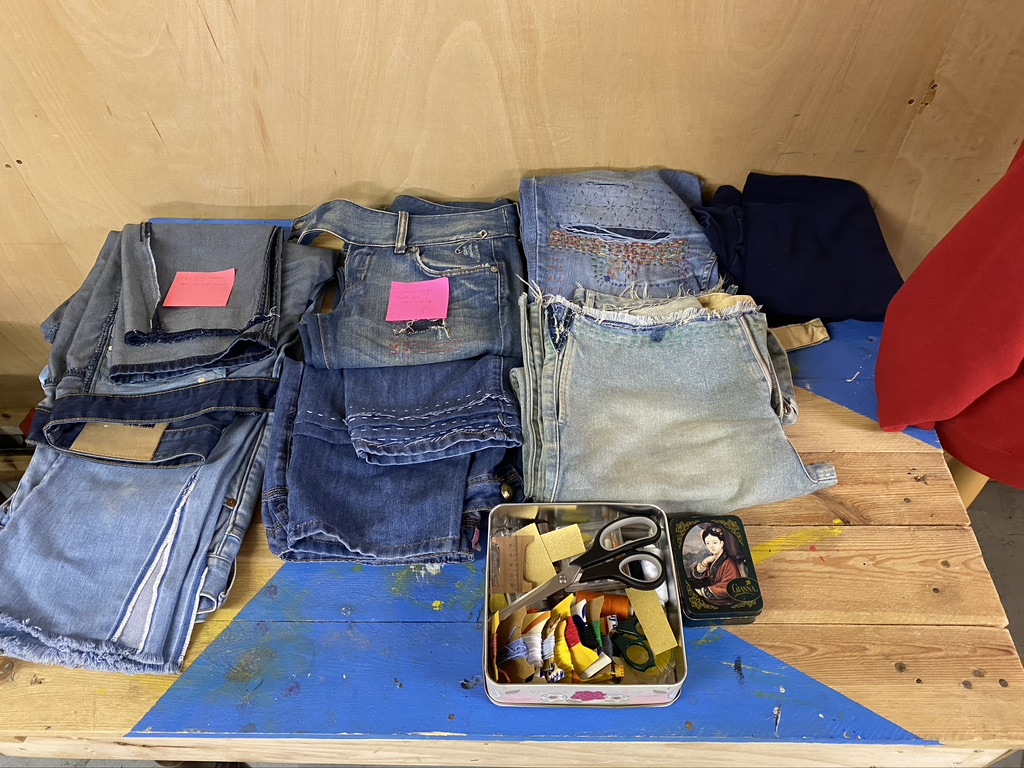
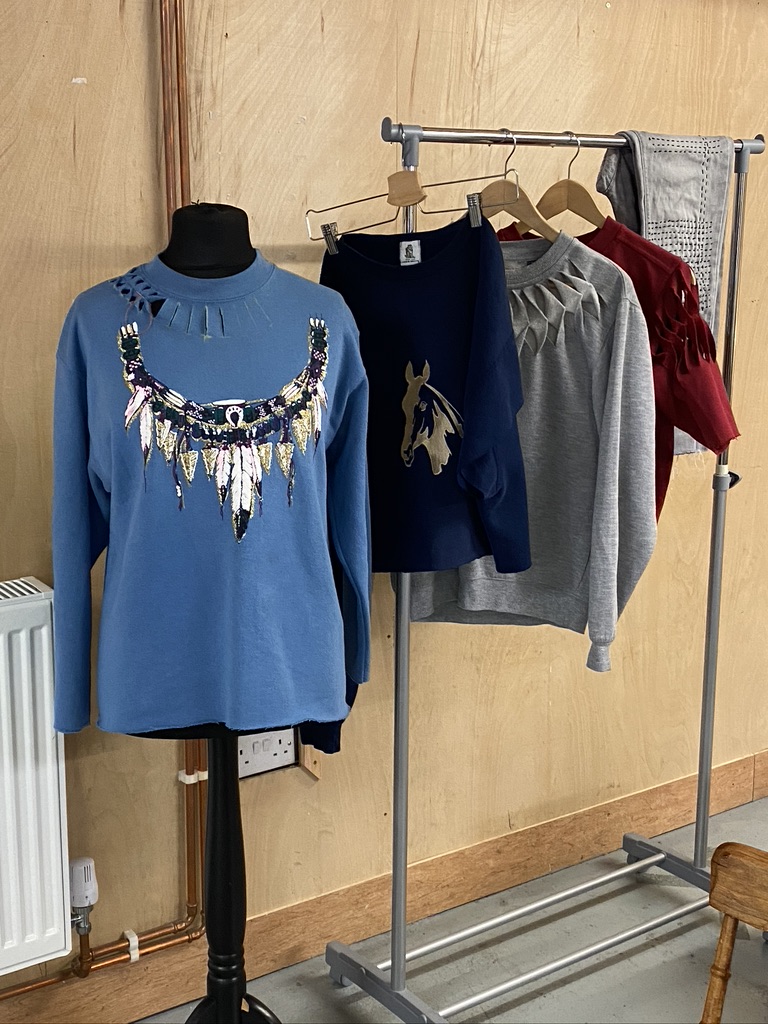
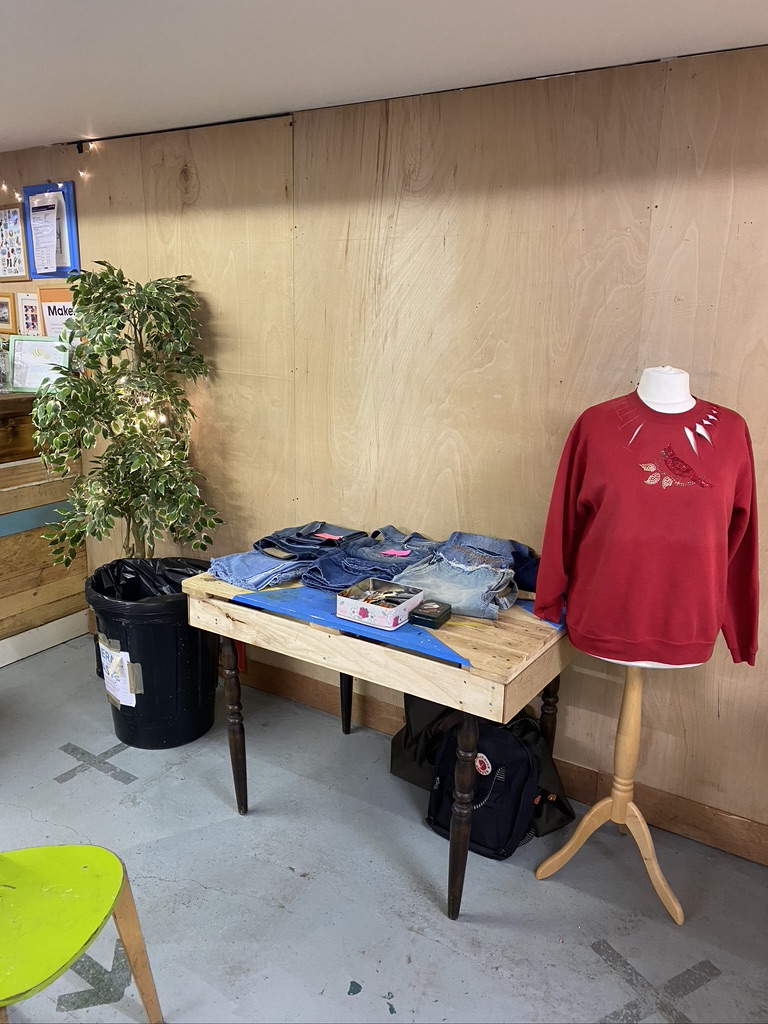
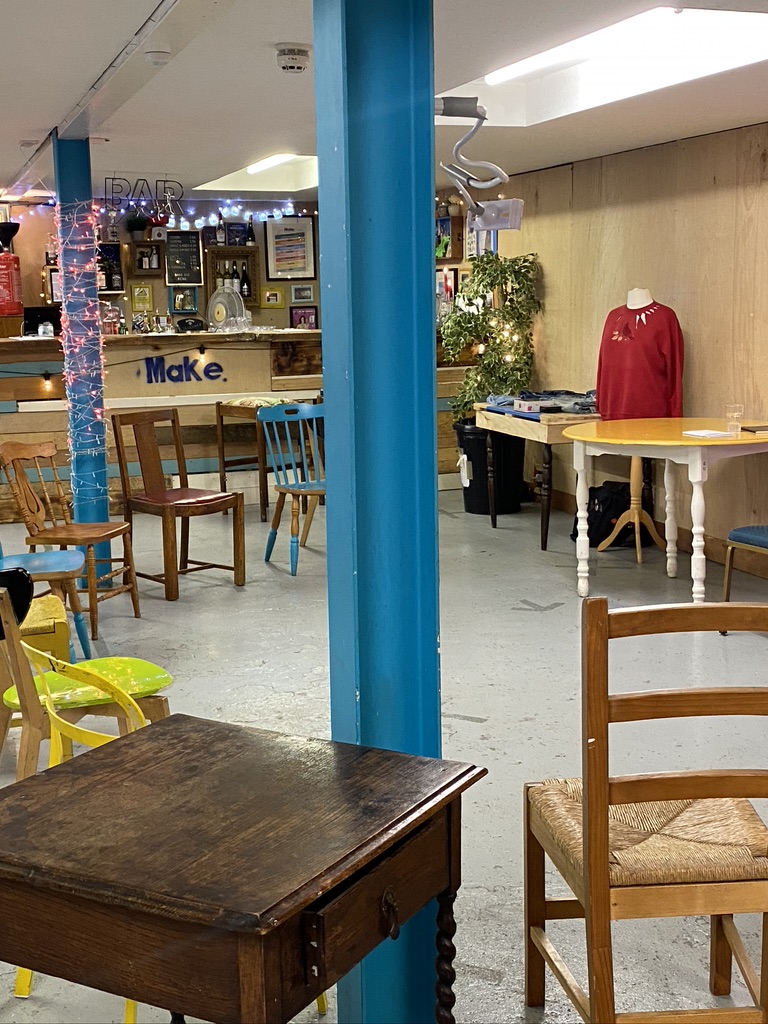
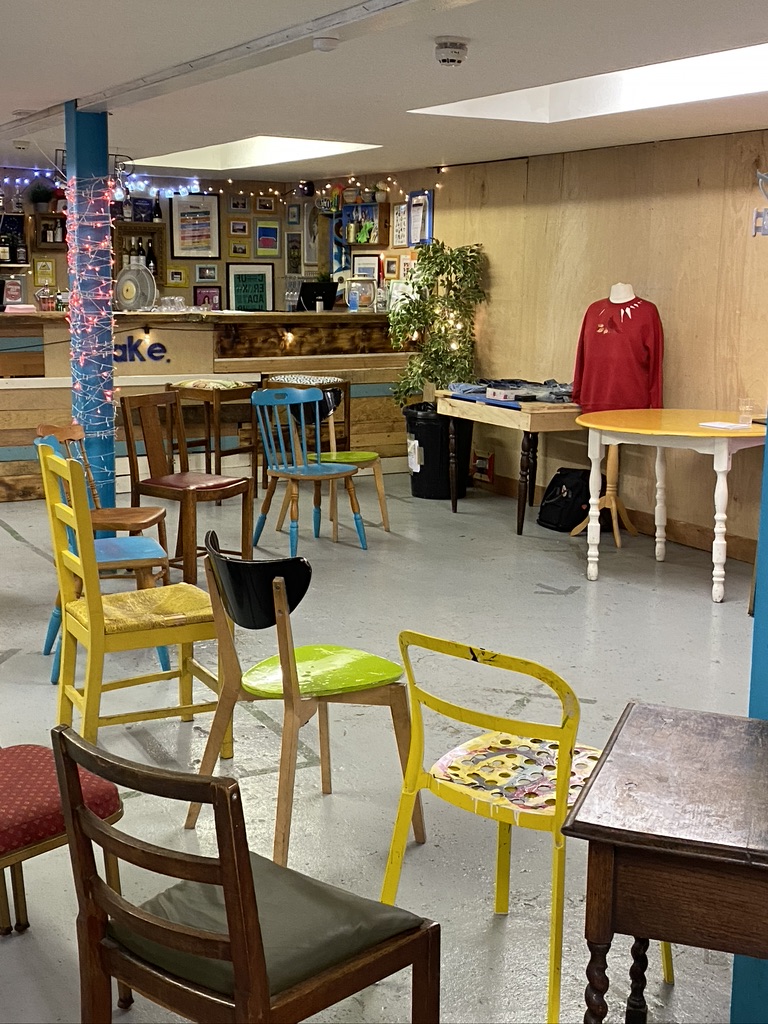
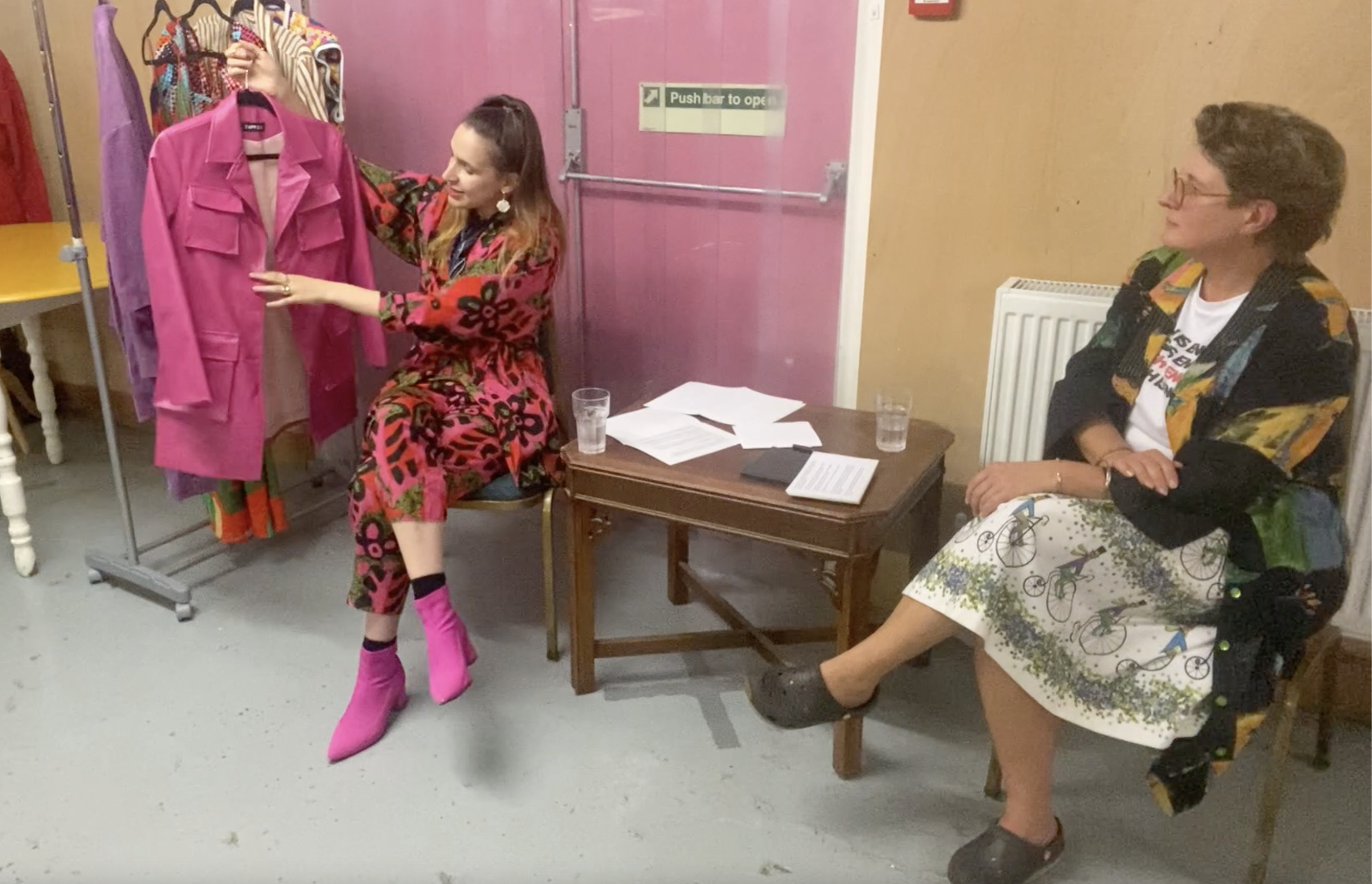

We gathered for an in conversation event with sustainable fashion journalist Sophie Benson. The event was funded by the Liverpool Fashion Summit’s Sustainable Development Fund. We talked about the opportunity that slow fashion can bring in reclaiming your own unique style; experimenting with customising secondhand clothes and visible mending, seeking out small ethical brands and spending time making good buying choices. I asked Sophie to bring along some items for a virtual rummage through her wardrobe, learn how she curates her wardrobe.
The problems of fast fashion are huge and complex but resisting and navigating the marketing and greenwashing is really hard. 90% of the fashion industry's profit is controlled by 11 companies. These companies make up to 20,000 of a single style .. that’s a lot of people walking around in the same thing.
Definition of consumer - from Latin consumere: to destroy, wear away, extinguish, wear down, devour, exhaust, to take, use up, spend, waste, squander (in different format, like a dictionary definition).
Excessive production and overconsumption is having a detrimental impact on the climate, from the excessive use of natural resources, to carbon emissions and the pollution of processing. The industry is fuelled through long supply chains, with little transparency to show mistreatment of garment workers, both here in the UK and overseas.
Finding your own style, re-calibrating waste as a resource, customising the clothes you already have to pick up seasonal trends rather than buying new can bring joy to your wardrobe and colour to your life.
We talked about affordability and making time for shopping. Managing your spending to access brands with good ethics, so you can send your money to the crop growers and makers rather than adding to high street profit seekers. Sophie told us about her favourite brands, where she knows about the quality and sizing so can avoid unnecessary returns and has a relationship with so she can ask questions directly to get her purchase right first time.
I shared my mantra of “keeping is my fast fashion”. I put my winter clothes away in the summer and vice versa, and then when I get them out it feels like new again. And I keep things forever so I have lots of variety in my wardrobe.
We talked about responsible disposal, charity shops and overseas landfill are overwhelmed with our cheap, damaged clothes that cannot be sold on or used. What do you do with pieces that you’ve tired of or don't want anymore? Buying fewer items of good quality means they are repairable when damaged, and can be passed onto friends and community that needs them.
I asked Sophie about her connection with her clothes, the attachment to be formed through making and repairing. The memories they can hold if they are worn to multiple events or have been handed down,
giving clothes their own value.
We cried a bit, as sustainable fashion advocates, following the heartbreaking announcement that influencer Molly Mae was to be the new creative director of Pretty Little Thing. But we reflected on the many positive changes we’d witnessed over recent years. There has been a shift in the last 10years, and accessibility of good brands is increasing but the big take away is to use your instinct to guide you through the greenwashing and ask questions.
Following the conversation, I demonstrated some upcycling techniques for denim and sweatshirts. From no sew to remaking a waistband, using sashiko stitching and boro patching on denim and a slash / sew technique for sweatshirts.
Audience members shared their work and brought treasured pieces for advice on how to repair and upcycle.
The problems of fast fashion are huge and complex but resisting and navigating the marketing and greenwashing is really hard. 90% of the fashion industry's profit is controlled by 11 companies. These companies make up to 20,000 of a single style .. that’s a lot of people walking around in the same thing.
Definition of consumer - from Latin consumere: to destroy, wear away, extinguish, wear down, devour, exhaust, to take, use up, spend, waste, squander (in different format, like a dictionary definition).
Excessive production and overconsumption is having a detrimental impact on the climate, from the excessive use of natural resources, to carbon emissions and the pollution of processing. The industry is fuelled through long supply chains, with little transparency to show mistreatment of garment workers, both here in the UK and overseas.
Finding your own style, re-calibrating waste as a resource, customising the clothes you already have to pick up seasonal trends rather than buying new can bring joy to your wardrobe and colour to your life.
We talked about affordability and making time for shopping. Managing your spending to access brands with good ethics, so you can send your money to the crop growers and makers rather than adding to high street profit seekers. Sophie told us about her favourite brands, where she knows about the quality and sizing so can avoid unnecessary returns and has a relationship with so she can ask questions directly to get her purchase right first time.
I shared my mantra of “keeping is my fast fashion”. I put my winter clothes away in the summer and vice versa, and then when I get them out it feels like new again. And I keep things forever so I have lots of variety in my wardrobe.
We talked about responsible disposal, charity shops and overseas landfill are overwhelmed with our cheap, damaged clothes that cannot be sold on or used. What do you do with pieces that you’ve tired of or don't want anymore? Buying fewer items of good quality means they are repairable when damaged, and can be passed onto friends and community that needs them.
I asked Sophie about her connection with her clothes, the attachment to be formed through making and repairing. The memories they can hold if they are worn to multiple events or have been handed down,
giving clothes their own value.
We cried a bit, as sustainable fashion advocates, following the heartbreaking announcement that influencer Molly Mae was to be the new creative director of Pretty Little Thing. But we reflected on the many positive changes we’d witnessed over recent years. There has been a shift in the last 10years, and accessibility of good brands is increasing but the big take away is to use your instinct to guide you through the greenwashing and ask questions.
Following the conversation, I demonstrated some upcycling techniques for denim and sweatshirts. From no sew to remaking a waistband, using sashiko stitching and boro patching on denim and a slash / sew technique for sweatshirts.
Audience members shared their work and brought treasured pieces for advice on how to repair and upcycle.
